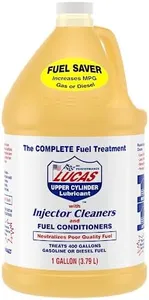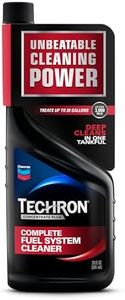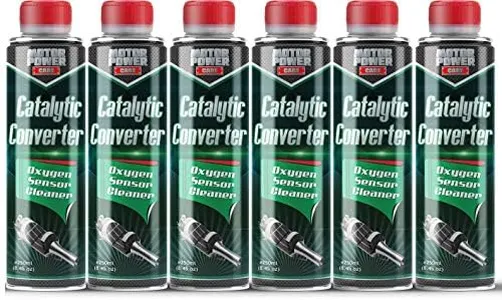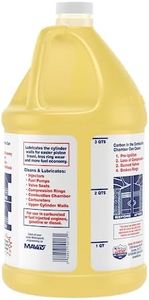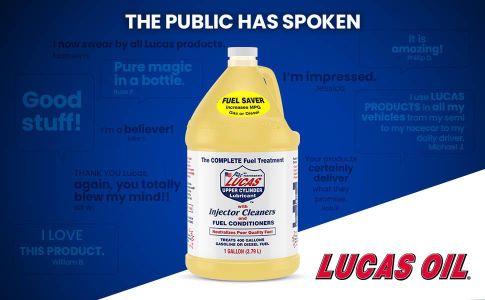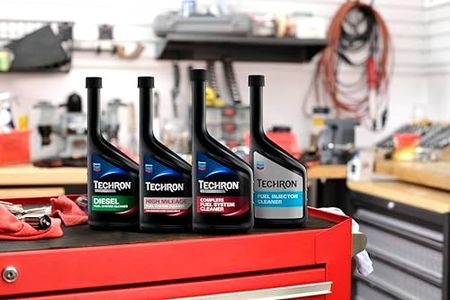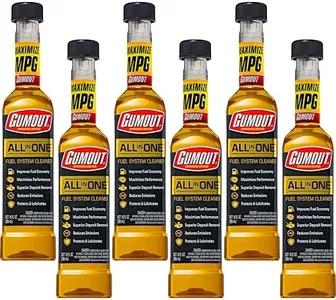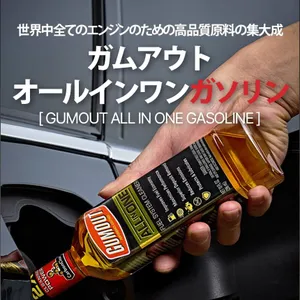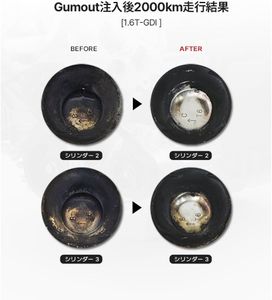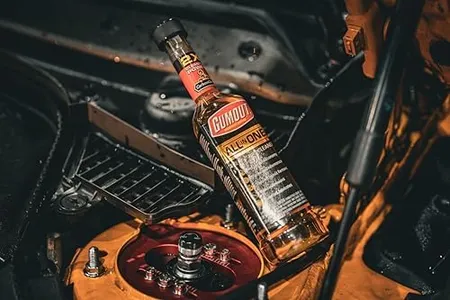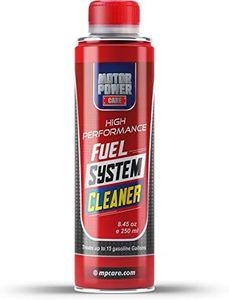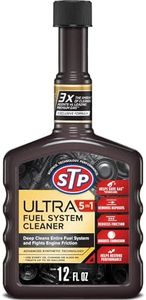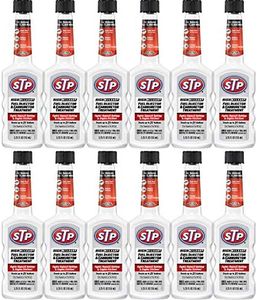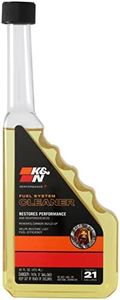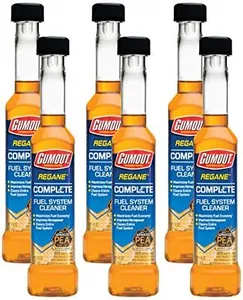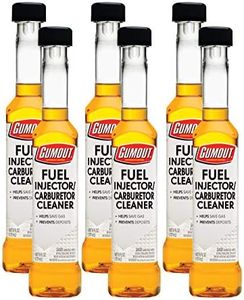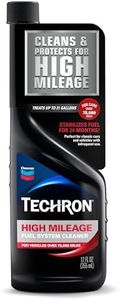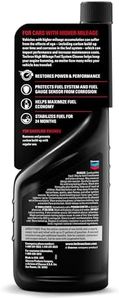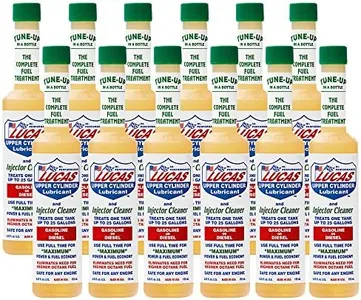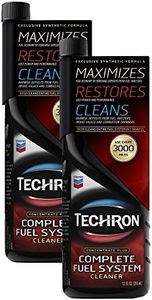10 Best Fuel Treatments 2025 in the United States
Winner
Lucas Oil 10013 Fuel Treatment - 1 Gallon
The Lucas LUC10013 Fuel Treatment is designed to clean and lubricate your fuel system, including fuel injectors, carburetor, and combustion chamber. It’s compatible with gasoline and is known for improving fuel economy by removing deposits and enhancing fuel combustion efficiency. This product also helps reduce harmful emissions like carbon monoxide and nitrogen oxides, contributing to a cleaner environment.
Most important from
22848 reviews
Chevron Techron Concentrate Plus Fuel System Cleaner, 20 oz., Pack of 1
The Chevron Techron Concentrate Plus Fuel System Cleaner is a highly concentrated fuel treatment designed specifically for gasoline engines. It is known for its quality and effectiveness, evidenced by its high customer ratings (4.6 out of 5 from 15,655 reviews) and ranking as a top seller in the automotive category. This product aims to improve engine performance by reducing issues like rough idle, engine surge, hesitation, and spark plug fouling.
Most important from
15398 reviews
Lucas Oil 10003 Fuel Treatment - 1 Quart
The Lucas Oil 10003 Fuel Treatment is a versatile and efficient product suitable for both gasoline and diesel engines, making it a great option for a wide range of users. Its primary strength lies in the comprehensive benefits it offers by cleaning and lubricating the fuel system, including fuel injectors and combustion chambers. This ensures improved fuel economy and better engine performance, with users likely noticing increased power and acceleration.
Most important from
22848 reviews
Top 10 Best Fuel Treatments 2025 in the United States
Winner
Lucas Oil 10013 Fuel Treatment - 1 Gallon
Lucas Oil 10013 Fuel Treatment - 1 Gallon
Chosen by 1480 this week
Chevron Techron Concentrate Plus Fuel System Cleaner, 20 oz., Pack of 1
Chevron Techron Concentrate Plus Fuel System Cleaner, 20 oz., Pack of 1
Lucas Oil 10003 Fuel Treatment - 1 Quart
Lucas Oil 10003 Fuel Treatment - 1 Quart
Gumout 510016 All-in-ONE Complete Fuel System Cleaner, 10oz. (Pack of 6)
Gumout 510016 All-in-ONE Complete Fuel System Cleaner, 10oz. (Pack of 6)
Gumout 510023 Regane High Mileage Fuel System Cleaner, 6 oz. (Pack of 6) (510023W-6PK)
Gumout 510023 Regane High Mileage Fuel System Cleaner, 6 oz. (Pack of 6) (510023W-6PK)
Our technology thoroughly searches through the online shopping world, reviewing hundreds of sites. We then process and analyze this information, updating in real-time to bring you the latest top-rated products. This way, you always get the best and most current options available.

